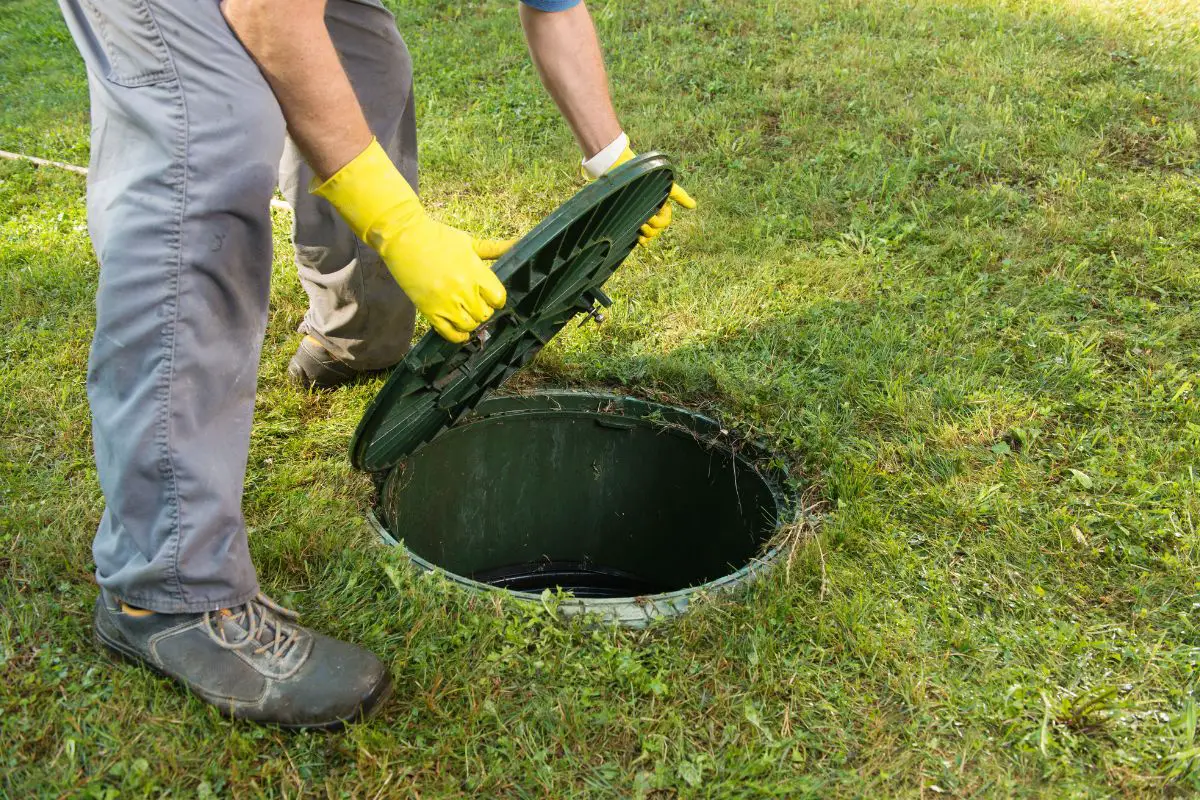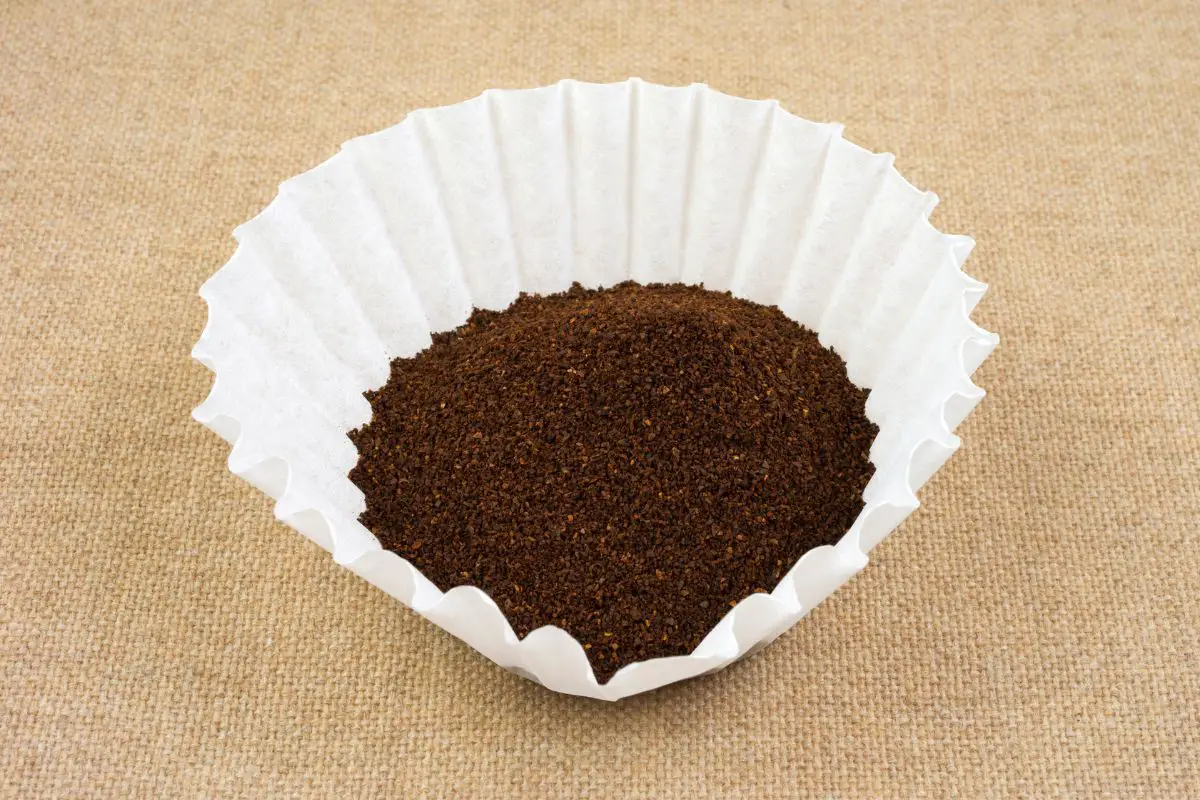In this article, we’ll answer the question “Are coffee grounds bad for septic” and discuss the do’s and don’ts when disposing of coffee grounds. Additionally, we’ll discuss what should and shouldn’t go into the septic tank. Read on!

First things first, coffee grounds shouldn’t go into the septic tank. This is because coffee grounds don’t dissolve into the tank. They create a sediment layer at the bottom of your tank. The layer is the reason why septic tanks are pumped out more often which is costly. If the tank is left unpumped, it may overfill, which may lead to dirty and foul-smelling wastewater overflowing your yard. Let’s get into details.
What is a Septic Tank and How Does It Work?
A septic tank is an underground tank made of fiberglass, plastic, or concrete in which the sewage from bathrooms, laundry, and kitchen drains is collected for basic sewage treatment. A septic system comprises a septic tank and a draining system such as a soil absorption field or a drain field.
The septic tank works by digesting organic materials while allowing solid materials to settle at the bottom as sludge. The grease and oil in the septic tank float to the top of the wastewater as scum. The sludge and scum remain in the tank as the liquid wastewater exits the tank into a soil absorption field or a drain field.
Why You Should Not Put Coffee Grounds In A Septic Tank
There are several reasons why you should not throw your coffee grounds in a septic tank. They include:
1. Coffee Grounds Add to Your Tank’s Sludge Layer
Coffee grounds take almost three months to decompose in the soil. On the other hand, they’ll take longer to decompose in your septic tank. Throwing away coffee grounds into the septic tank leads to the build-up of the sludge layer at the bottom of the tank. Eventually, the septic tank becomes overwhelmed by the solids of the sludge which leads to sewage back up into your home or an overflow into your yard.
You’ll have to pay for the solids to be pumped out, which may be expensive. Therefore, avoid disposing of your coffee grounds in a septic tank. The only solids that should be flushed out into the septic tank are toilet paper and human waste. Otherwise, coffee grounds in your septic tank may lead to a whole system failure.
2. Coffee Grounds Can Upset the PH Levels of Your Tank
Coffee grounds in your septic tank upset the PH levels of your tank, something that can lead to a whole system failure. When coffee grounds are thrown into the tank they continue with the brewing process. Despite the brew being less potent, it has the potential to cause a chemical imbalance in your tank.
The bacteria in a septic tank are responsible for decomposing the materials in the tank. Usually, the bacteria thrive at a PH of 6.5 and 7.5. On the other hand, used coffee grounds are fairly acidic and have PH levels of 4.85 and 5.1. Therefore, throwing coffee grounds into your septic tank lowers the efficiency of the bacteria thus more solids in the tank. When the coffee grounds interfere with the bacteria’s functioning, it may lead to a system failure.
3. Coffee Grounds Can Lead to Septic Clogs
Apart from coffee grounds adding up to the solids in the septic tank and upsetting the PH, they can also lead to septic clogs. When this happens, there are chances that the wastewater or sewage may back up into your home. Additionally, throwing coffee grounds down the drain may lead to a plumbing clog within the pipe. Mostly, coffee grounds will collect where the pipe bends. Septic and plumbing clogs can be a headache and expensive, so they’re better avoided.
How to Dispose of Coffee Grounds
Since septic tanks are expensive to repair, it’s not worth throwing your coffee grounds into the drain. You can throw them into the garbage or use them for the following:
Repel Insects
Coffee grounds are effective as insect repellents for your home and garden due to their high acidity. You can sprinkle them around your home to prevent insects such as ants, fruit flies, beetles, mosquitoes, and bugs from venturing inside. Additionally, you can repel pests in your garden by scattering coffee grounds around plants.
For Your Garden
Coffee grounds are also useful in fertilizing your garden. They contain minerals such as nitrogen, potassium, phosphorus, calcium, chromium, and magnesium that are essential for plant growth. Also, coffee grounds attract worms that serve a great purpose in your garden.
As a Deodorizer
Coffee grounds can be used as deodorizers since they contain nitrogen that helps eliminate foul smells. Additionally, you can use coffee grounds to neutralize odors from fragrant or spoiled foods in your fridge.
For Your Compost Bin
You can compost your used coffee grounds for your yard or garden. Compost helps your soil hold onto water and nutrients, which improves the health of the plants.
Other Items that Shouldn’t Go into a Septic Tank
The following items shouldn’t go into a septic tank since they can lead to its failure. They include:
- Medications
- Bleach
- Oils and grease
- Coffee grounds
- Feminine hygiene products
- Diapers
- Flushable wipes
- Veggie peels
- Paint
- Cigarette butts
Safe Items for a Septic Tank
Here are some safety items for your septic system.
- Disinfectants – water-based
- Toilet Cleaners – Water-based
- Cleaning products with ammonia
- Small amounts of pure ammonia
- Water-based carpet cleaners
Should Coffee Filters Go into a Septic Tank?

Just like coffee grounds, coffee filters shouldn’t go into a septic tank. This is because the paper used in making the filters is thick and weighty to decompose in a septic tank. Coffee filters in a septic tank may lead to clogs which are unpleasant and expensive too.
Conclusion
Generally, septic tanks should not be used as garbage disposal. Coffee grounds, food waste, and food scraps should be thrown into a garbage bin or composted for use in the garden if possible. Moreover, throwing solids such as coffee grounds through the drainage will lead to solid build-up in the septic tank, plumbing or septic clogs, and septic tank PH levels interference. Eventually, your septic tank becomes overwhelmed by the solids inside which leads to a backup of sewage into your home or yard.